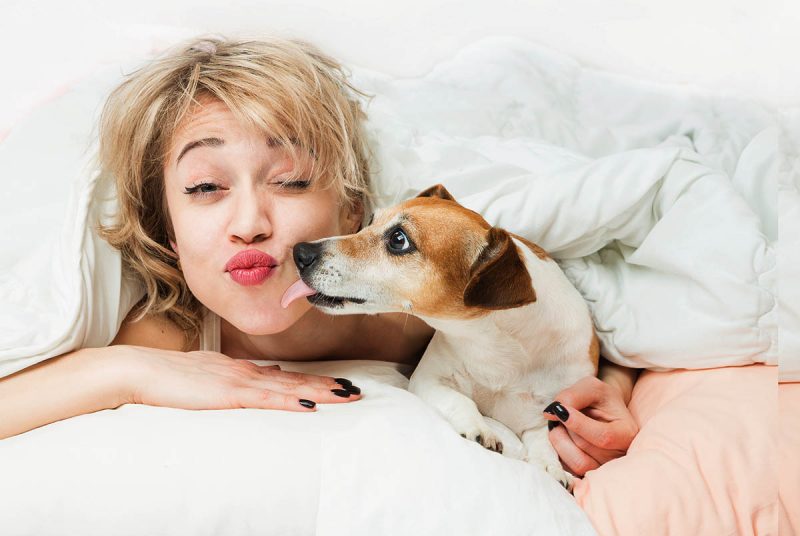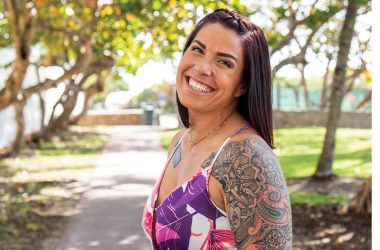Improve your sleep hygiene with these tricks
Want to get a better night’s rest? Try sleeping with your dog. While the idea may sound silly, there’s science to back it up: A study of 150 patients at the Mayo Clinic’s Center for Sleep Medicine found that people who slept with a dog in their bedroom were able to rest more efficiently than those who slumbered without a pooch. The researchers concluded that the dogs had a calming effect on the patients, allowing them a more restful sleep.
But if you’re pet-less, don’t despair: There are other tricks to help set yourself up for a good night’s rest. The key, according to the Sleep Foundation, is to practice good sleep hygiene – the act of creating a bedroom environment and evening routine to promote consistent, uninterrupted sleep. Here are four practices to follow:
1Three hours before bed, stop eating so you can give your gastrointestinal tract time to digest. And pay attention to what you have for dinner: Consuming foods that are high in tryptophan (like cherries, pumpkin seeds and milk) three to four hours before going to sleep can help.
2Two hours before bed, eliminate all work activities, including emailing and social media. If you must look at a smartphone or computer screen, use blue-light blocking glasses, which can reduce the blue light that interferes with your natural sleep cycle. Set an alarm that reminds you to turn off electronics at a designated time each evening.
3One hour before bed, engage in meditation, guided imagery or another soothing exercise to prepare for sleep. If relaxing with a partner, avoid mentally taxing conversations (like talking about finances), which can cause a surge in adrenaline and leave your mind racing when your head hits the pillow.
4Go to bed at the same time every night. Those who go to sleep at the same time each night and rise at the same time each morning are more likely to have a better-quality snooze than those with erratic habits. And they’re more successful during their waking hours, too, according to a study measuring the circadian rhythms of undergraduates at Harvard University. The research found that the students with irregular sleeping and waking patterns had a lower grade point average than those with regular habits. They also struggled to get sleepy at night due to irregular releases of melatonin – the hormone that makes us want to nod off into dreamland.
The American National Sleep Foundation recommends that adults get between seven and nine hours of sleep per night. According to a study by ENTRAIN, that surveyed the sleep habits of people across the globe, adults in the Netherlands get the most sleep, logging in eight hours and five minutes per night. People in the U.S. fall in the middle of the pack, with an average of seven hours and 52 minutes of sleep, while those who live in Singapore get the least amount of sleep, snoozing just seven hours and 24 minutes nightly.
© Fly_dragonfly; Jenifoto


